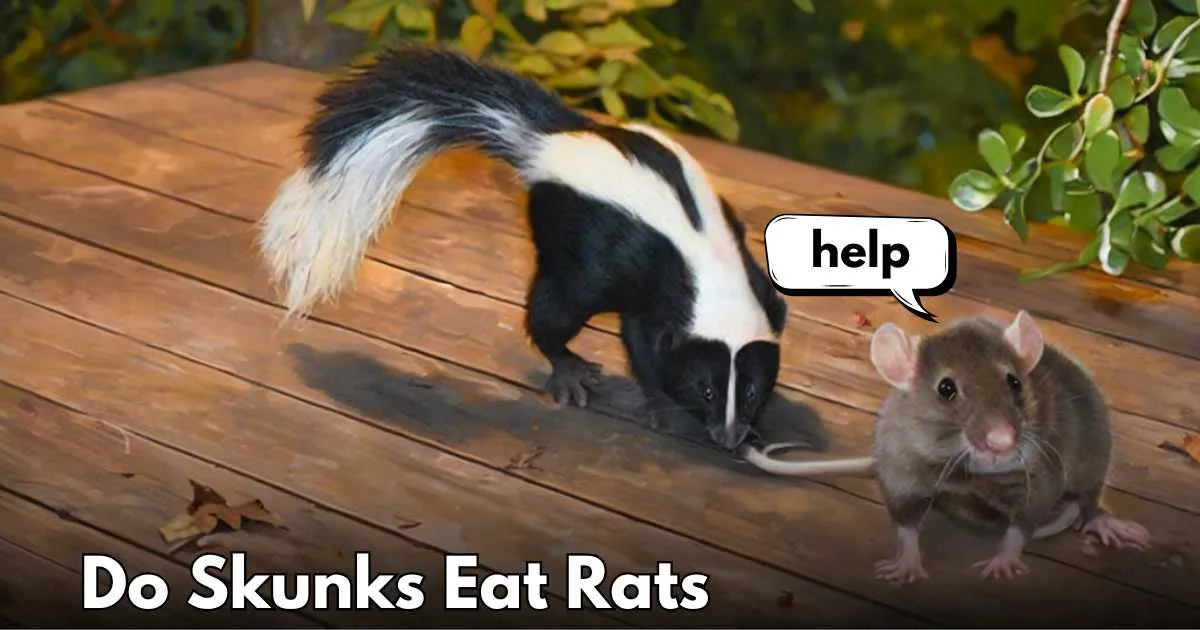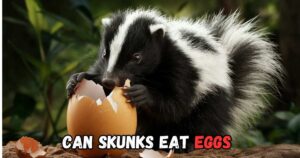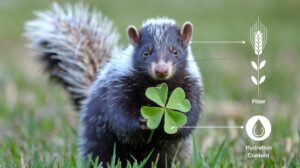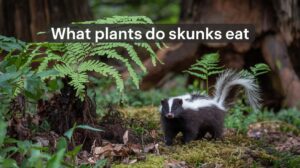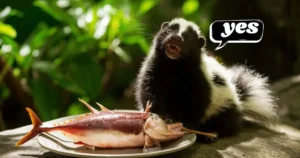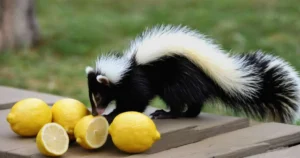Do Skunks Eat Rats?? Exploring Their Diet
Skunks, known for their distinctive black-and-white coats and their famous defensive spray, have a surprisingly varied diet. While many people associate them with rummaging through garbage or feasting on insects, skunks are actually opportunistic omnivores. This raises an interesting question: Do skunks eat rats? The answer is yes, although not frequently their top choice, skunks will consume rats when the opportunity arises.
The Skunk’s Diet
Omnivorous Nature:
Skunks adapt their eating habits to what’s available in their environment. They enjoy a wide range of foods, including:
- Insects: Beetles, grubs, and crickets are staples.
- Fruits and Berries: Seasonal produce like berries and fallen fruit.
- Plants and Nuts: Seeds, nuts, and certain leaves round out their diet.
- Small Mammals: Mice, voles, and on occasion, rats.
This dietary flexibility is key to their survival. By not relying on just one food source, skunks can thrive in diverse habitats, from rural woodlands to suburban gardens.
Why Rats?
Opportunistic Feeding:
Rats are not typically a skunk’s primary target. Insects are often easier to catch, and plant matter requires no chase at all. However, skunks are opportunists. If a skunk encounters a rat—perhaps one caught off-guard or found in a nest—it won’t pass up the chance for a protein-rich meal.
Nutritional Benefits:
Rats provide essential nutrients. They’re a source of protein and fat, vital for building muscle and maintaining energy. When other preferred foods are scarce, small rodents like rats become an attractive option.
Hunting and Foraging Behavior
Nocturnal Predators:
Skunks are mostly active at night, using their keen sense of smell and their sharp claws to find and catch prey. Rats, being nocturnal as well, sometimes share the same active hours. Although rats are quick and cautious, a skunk’s patient prowling might pay off.
Adaptability:
Skunks aren’t specialists in hunting small mammals, but their adaptability helps them succeed. If a rat’s burrow is disturbed, or if a rat is ill or slow, a skunk can easily capitalize on this vulnerability.
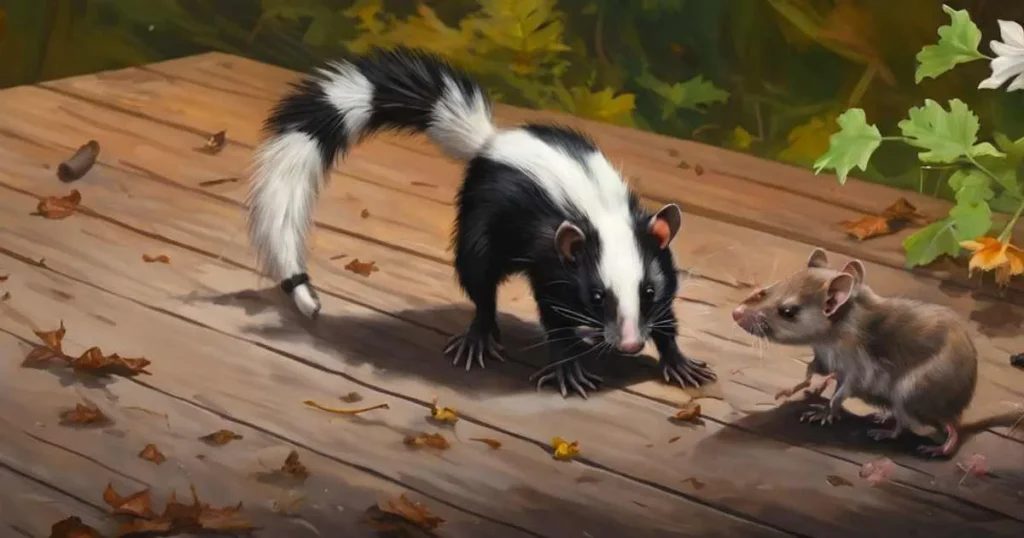
Impact on Rodent Populations
Natural Pest Control:
One beneficial aspect of skunks eating rats is their contribution to controlling rodent populations. Rats can cause property damage and spread diseases, so having a natural predator like the skunk helps maintain balance. Skunks indirectly assist farmers, gardeners, and homeowners by keeping rat numbers in check.
Ecological Balance:
In addition to insects, seeds, and fruit, rats are one of the many food sources that help maintain a healthy ecosystem. By preying on rodents, skunks play their part in preventing any single species—like rats—from overwhelming the environment.
Interactions with Humans and Wildlife
Human-Enriched Environments:
In urban or suburban areas, skunks may venture into yards, garbage bins, or under decks, finding easy meals. While this can sometimes bring them close to rats drawn by similar resources, it also means humans inadvertently provide hunting grounds.
Other Predators:
Skunks sharing territory with other predators results in a complex web of interactions. Owls, foxes, and coyotes also target rodents. By competing for similar prey, skunks influence local rodent dynamics and contribute to the broader predator-prey balance.
Frequently Asked Questions
Do skunks actively hunt rats?
Skunks do not typically target rats as their primary prey. They’re more likely to hunt insects and eat fruits. However, if a skunk encounters a rat, it will seize the opportunity.
Can skunks help reduce rat problems?
While not a foolproof method, skunks can help control rat populations. Their presence and occasional predation can reduce the number of rodents in an area.
Are skunks dangerous to humans while hunting?
Skunks generally avoid conflicts with humans. They use their spray as a last resort. If you see a skunk, give it space and do not approach it.
Conclusion
Skunks are adaptable omnivores whose dietary habits extend beyond insects, fruits, and trash scraps to include small mammals like rats. Although rats aren’t their favorite meal, skunks do eat them when it’s advantageous. This opportunistic feeding behavior plays a subtle yet valuable role in managing rodent populations and maintaining ecological balance. By understanding what skunks eat—and why—we gain a deeper appreciation for these often misunderstood creatures and their place in the natural world.

